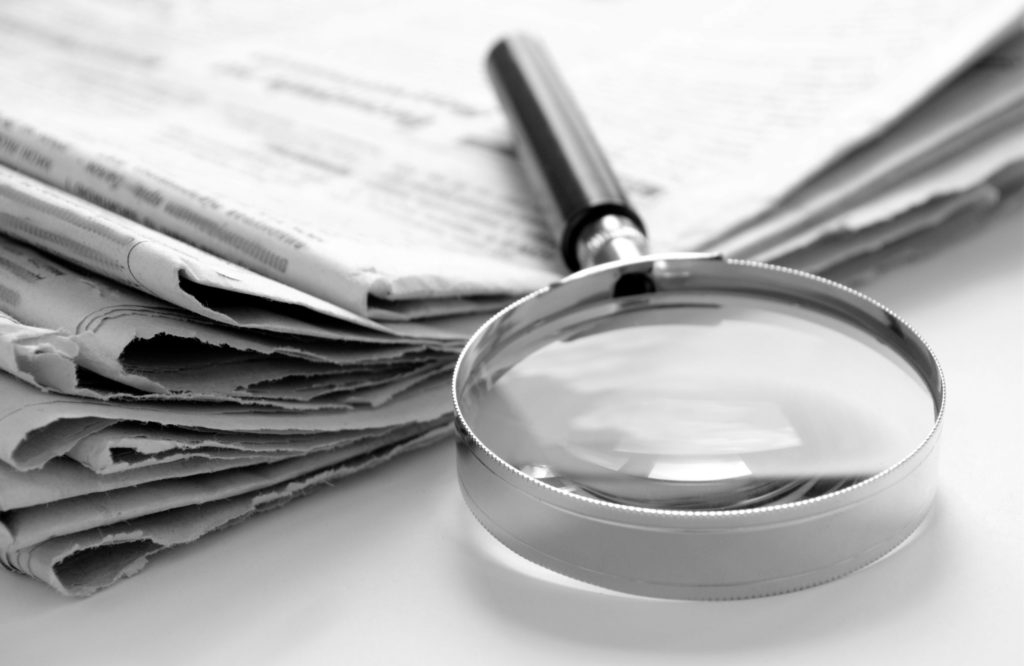Australia/Israel Review
Media Microscope: In Reverse
Oct 26, 2022 | Allon Lee

The fumbling manner in which the Albanese Government reversed the Morrison Government’s 2018 decision to formally recognise west Jerusalem as Israel’s capital prompted two types of commentary. Some were interested only in the process that led to Foreign Minister Penny Wong’s announcement, while others were willing to discuss the underlying substantive issues.
On Oct. 19, ABC Radio National “Breakfast” host Patricia Karvelas questioned Federal Labor Climate Change and Energy Minister Chris Bowen solely on the handling of the announcement. In the same bulletin, Karvelas pushed former Australian Ambassador to Israel and former Liberal MP Dave Sharma to justify criticising the Government, when it was well-known Labor intended to take this step.
Karvelas appeared disinterested in Sharma’s explanation that recognition acknowledged “the reality that… Israel… has all its offices and national institutions there” and “under no conceivable two-state solution… does… West Jerusalem… cease to be the capital of Israel.” By contrast, Sharma was able to discuss policy substance unimpeded in an op-ed in the Australian (Oct. 19) and multiple appearances on Sky News.
On ABC TV “7.30” (Oct. 20), Laura Tingle insisted that the response to the decision “mostly provoked criticisms of process, rather than of the underlying decision.”
ABC TV “Breakfast” host Madeline Morris (Oct. 19) was an exception, asking left-wing Israeli activist Yariv Oppenheimer about the significance of the decision for Israelis and Palestinians. Oppenheimer’s claim that “40% of the population in Jerusalem are not Israeli citizens. They are Palestinians” omitted the key point that Palestinian residents of Jerusalem can apply for Israeli citizenship but most choose not to.
On ABC RN “Religion & Ethics Report” (Oct.19), Sydney-based, Israeli-born academic Eyal Mayroz said the decision will have no practical effect, but urged that states recognise “west Jerusalem as the capital of Israel, but at the same time on condition that they also support the recognition of a Palestinian state with east Jerusalem as its capital.”
On ABC RN “Drive” (Oct.18), Izzat Abdulhadi, head of the General Delegation of Palestine to Australia, claimed the decision will help “save the two-state solution and the peace process in the Middle East.”
In the West Australian (Oct. 21), Channel Seven political editor Mark Riley focused on process, particularly Labor denying changes were afoot, only to admit the next day it was happening, “with Jewish leaders given just a few minutes warning.”
By contrast, in the Herald Sun and Advertiser (Oct. 19), AIJAC’s Colin Rubenstein recapitulated the pro-recognition case and examined how the claims made against doing so in 2018 have fared. He said, “It is simply not reasonable that Israel alone, of all the countries in the world, [cannot] choose its own capital,” and noted, “Palestinian intransigence has currently made final status negotiations impossible, despite three previous Israeli offers of a Palestinian state with a capital in east Jerusalem.” Dr Rubenstein’s media statement that the decision was an “own goal” for Labor was widely reported.
On Oct. 20, News Corp’s Andrew Bolt accused the Government of making policy based on the fact Muslims far outnumber Jews in Australia.
Visiting AIJAC guest Michael Rubin’s analysis in the Daily Telegraph (Oct. 21) made the point that “when Israel and the overwhelmingly Muslim country of Kosovo established diplomatic relations, Kosovo established its embassy in Jerusalem.” He argued Palestinian leaders have shown no interest in making peace, so reversing recognition actually “encourages Palestinian radicals to believe they can erase Jews entirely from Jerusalem and end the Jewish state.”
Earlier (Oct. 19), on Sky News, Chris Kenny editorialised, “if you really want to understand how bad this decision was, you only have to look at who welcomes it…[Hamas] says the decision opens the way for free countries to withdraw recognition of the Israeli occupation entity.”
The Australian’s Foreign Editor Greg Sheridan called the decision “antique, foolish” (Oct. 21), noting that former US President Donald Trump’s recognition and embassy move was retained by the Biden Administration and hasn’t impeded peacemaking.
On Oct. 21, a Guardian Australia primer defended the Government’s decision claiming that “[Foreign Minister] Penny Wong… said in December 2018 that Labor would reverse the decision.”
Except that subsequently, before the 2022 election, having been asked by Jewish organisations for an update on its Jerusalem stance, Labor’s written responses carefully avoided explicitly committing to reversing recognition.
Tags: Australia, Israel, Media/ Academia






